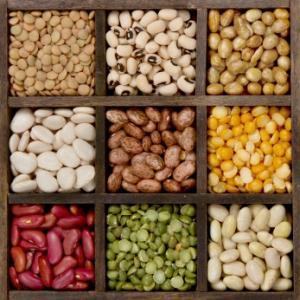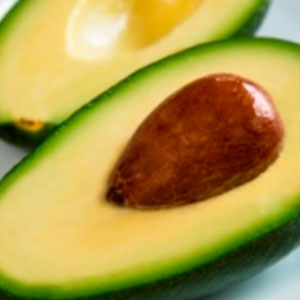Importance Of Cardamom
Author: Ola Thomas | Category: Food Facts, Uncategorized
 Up until the 19th century, most of the world was supplied with cardamom from the area where it originated: tropical parts of India, Nepal, and South Asia. This spice has been traded in those regions for over a thousand years, but today, it’s grown commercially in areas like Guatemala, New Guinea, and Vietnam, which indicates the type of climate it requires.
Up until the 19th century, most of the world was supplied with cardamom from the area where it originated: tropical parts of India, Nepal, and South Asia. This spice has been traded in those regions for over a thousand years, but today, it’s grown commercially in areas like Guatemala, New Guinea, and Vietnam, which indicates the type of climate it requires.
From the Zingiberaceae family of plants, cardamom comes in a small, greenish pod and has a strong, unique, spicy-sweet or camphor…
10 Apr 2015




 Eating beans, lentils and other legumes may help you cut down on LDL “bad” cholesterol and lower your risk for heart disease, a new review suggests.
Eating beans, lentils and other legumes may help you cut down on LDL “bad” cholesterol and lower your risk for heart disease, a new review suggests.
 Vitamin D deficiency is incredibly common in the US, but many Americans mistakenly believe they aren’t at risk because they consume vitamin-D-fortified foods (such as milk).
Vitamin D deficiency is incredibly common in the US, but many Americans mistakenly believe they aren’t at risk because they consume vitamin-D-fortified foods (such as milk). Can exercise help boost your cognitive faculties? Researchers increasingly say the answer is a resounding yes. Recent research reveals that exercise promotes a process now known as neurogenesis, i.e. your brain’s ability to adapt and grow new brain cells, regardless of your age…
Can exercise help boost your cognitive faculties? Researchers increasingly say the answer is a resounding yes. Recent research reveals that exercise promotes a process now known as neurogenesis, i.e. your brain’s ability to adapt and grow new brain cells, regardless of your age… “Succulent” is a perfect word for the juicy flesh of the peachy-orange cantaloupe, one of the most refreshing summer fruits. It’s a member of the cucurbit family of plants, along with cucumbers, pumpkins, gourds, and other melon varieties, like honeydew. Their cultivation is widespread throughout the world, including the US. California wins the prize for highest production, although we still import from South and Central America because consumption is high and it’s a warm-season crop.
“Succulent” is a perfect word for the juicy flesh of the peachy-orange cantaloupe, one of the most refreshing summer fruits. It’s a member of the cucurbit family of plants, along with cucumbers, pumpkins, gourds, and other melon varieties, like honeydew. Their cultivation is widespread throughout the world, including the US. California wins the prize for highest production, although we still import from South and Central America because consumption is high and it’s a warm-season crop. Women who eat a lot of fat, particularly saturated fat, may be at higher risk of certain types of breast cancer, new research suggests.
Women who eat a lot of fat, particularly saturated fat, may be at higher risk of certain types of breast cancer, new research suggests.
 Probiotics and/or prebiotics may help alleviate the severity of celiac disease. According to a new research study, intestinal bacteria in celiac patients could influence inflammation to varying degrees.
Probiotics and/or prebiotics may help alleviate the severity of celiac disease. According to a new research study, intestinal bacteria in celiac patients could influence inflammation to varying degrees. If you’re looking to shrink and tone your belly, there’s a better way to do it than trying to do crunches. In fact, research has shown that doing abdominal exercises alone—even when performed five days a week for six weeks—has no effect at all on subcutaneous fat stores and abdominal circumferencei.
If you’re looking to shrink and tone your belly, there’s a better way to do it than trying to do crunches. In fact, research has shown that doing abdominal exercises alone—even when performed five days a week for six weeks—has no effect at all on subcutaneous fat stores and abdominal circumferencei.